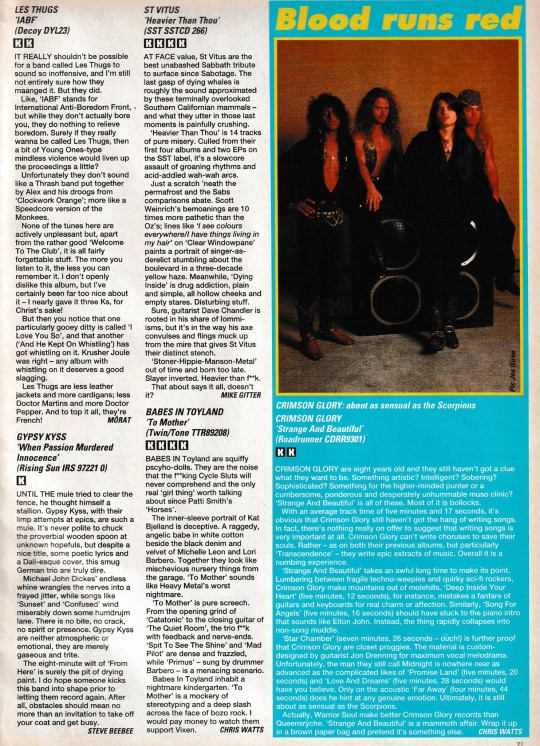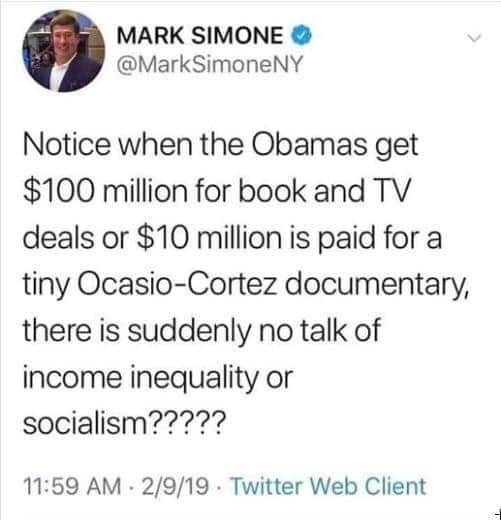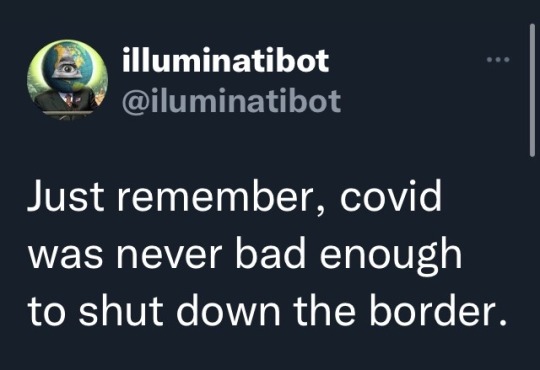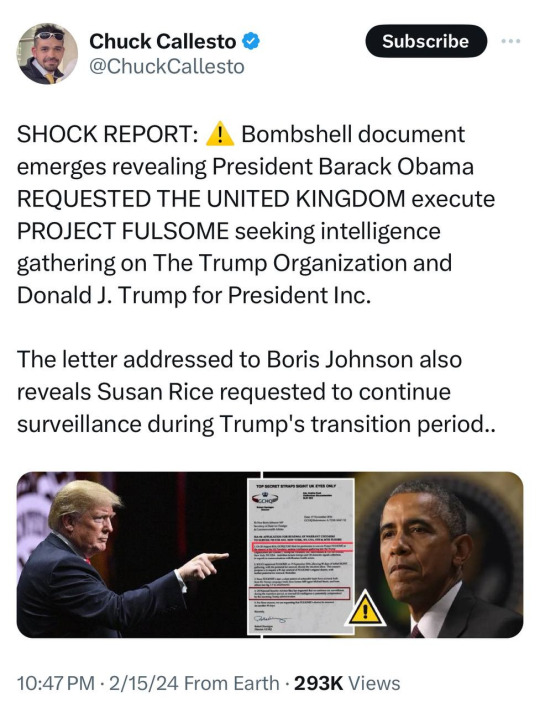#dissent magazine
Photo

DISSENT MAGAZINE
At critical times, foreign wars have tested the moral convictions of American leftists and affected the fate of their movement for years to come. The Socialist Party’s opposition to entering the First World War provoked furious state repression but later gained a measure of redemption when Americans learned that U.S. troops had not made the world safe for democracy after all. Leftists proved prescient again in the late 1930s when they rallied to defend the Spanish Republic against a right-wing military and its fascist allies, Italy and Germany. The republic’s defeat emboldened Adolf Hitler to launch what quickly became the Second World War. When, twenty years later, American Communists backed the Soviet Union’s crushing of the Hungarian Revolution of 1956, they shoved their party firmly and irrevocably to the margins of political life, which opened up space for the emergence of a New Left that rejected imperial aggressors of all ideological persuasions.
The war in Ukraine has a good chance of turning into another such decisive event. Who to blame for the bloodshed in that country should be obvious: a massive nation led by an authoritarian ruler with one of the world’s largest militaries at his disposal is seeking to conquer and subjugate a smaller and weaker neighbor. In pursuit of that vicious purpose, Vladimir Putin’s soldiers have committed countless rapes and acts of torture. His air force is systematically trying to destroy Ukraine’s infrastructure and economy, hoping to undermine its citizens’ will to resist. Yet Ukrainians, with the aid of arms from the United States and other NATO countries, have so far managed to fight this superior force to a stalemate.
A sizeable number of American leftists have embraced an alternate reality. For them, the culprit is NATO’s post–Cold War expansion, fueled by the drive of the U.S. state and capital to bend the world to their desires. The popular author and journalist Chris Hedges cracks that the war in Ukraine “doesn’t make any geopolitical sense, but it’s good for business.” The Green Party condemns the “perpetual war mentality” of the “US foreign policy establishment” and concludes, “There are no good guys in this crisis.”
These critics ignore or dismiss the fact that every nation that joined NATO did so willingly, knowing that Russia was capable of launching the kind of attack now underway in Ukraine. In the aftermath of the Soviet Union’s demise, the expansion of NATO may well have been too hasty. But not one of its newer members has done anything to threaten Putin’s regime. And every country that joined the alliance enjoys a democratically elected government. They contrast sharply with the handful of nations, besides Putin’s, that voted against a UN resolution last month demanding the Russians withdraw from Ukraine: Belarus, North Korea, Syria, Nicaragua, Eritrea, and Mali. All but the last are one-party dictatorships, and Mali relies on Russian mercenaries to battle Islamist rebels.
It seems not to bother these leftists that they are making common cause with some of the most atrocious and prominent stalwarts of the Trumpian right. Tucker Carlson routinely bashes the U.S. commitment to Ukraine with lines like “Has Putin ever called me a racist?” while Marjorie Taylor Greene recently declared, “I’m completely against the war in Ukraine. . . . You know who’s driving it? It’s America. America needs to stop pushing the war in Ukraine.”
On February 19, some members of the alliance of right and left staged a demonstration at the Lincoln Memorial in Washington to vent its “Rage Against the War Machine.” Speakers included Ron Paul and Tulsi Gabbard as well as Jill Stein, the Green Party’s 2016 nominee for president, and Medea Benjamin, the founder of Code Pink. Carlson promoted the event on the highest rated “news” show in the history of cable TV. At the Memorial, several protesters flew Russian flags.
To paraphrase August Bebel’s famous line about anti-Semitism, the hostility of those leftists who oppose helping Ukraine is an anti-imperialism of fools—although, unlike past Jew haters, they are fools with good intentions. Wars are always horrible events, no matter who starts them or why. And we on the left should do whatever we can to stop them from starting and end them when they do.
But neither the United States nor its allies forced Putin to invade. In speech after speech, he has made clear his mourning for the loss of the Soviet empire and his firm belief that Ukraine should be part of a revived one, this time sanctified by an Orthodox cross instead of the hammer-and-sickle. As the historian (and my cousin) David A. Bell wrote recently, the United States is not “the only international actor that really matters in the current crisis.” It may have the mightiest war machine, but Biden is not shipping arms to Ukraine in an attempt to subjugate Russia to his will. We should, Bell writes, “judge every international situation on its own terms, considering the actions of all parties, and not just the most powerful one. . . . the horrors Putin has already inflicted on Ukraine, and his long-term goals, are strong reasons . . . for continuing current U.S. policy, despite the attendant costs and risks.”
(Continue Reading)
#politics#the left#dissent magazine#foreign policy#war#progressive#progressive movement#Russia#ukraine#NATO#imperialism
51 notes
·
View notes
Text
#ceasefire#israel#palestine#conflict#colonialism#imperialism#zionism#anti-zionism#Dissent Magazine#socialism#communism
5 notes
·
View notes
Text
The Agoraphobic Fantasy of Tradlife from Dissent Magazine
#The Agoraphobic Fantasy of Tradlife#Dissent Magazine#Ye True Olden Days#Some Tunes Shouldn't Be Whistled#Tradwife#Tradfem#Traditionalism#Homemaker#Homemaking#Housewife#NonTrad Homemaker#NonTrad Housewife#NonTrad Homemaking#Folk Life#Slow Life#Homesteading#Bookshelf
0 notes
Text
“A pet interest of mine is how politically consequential models and forecasts are. The left produces very few of its own. That’s not to say we need to live in an alternate reality or have models based on different numbers, but we need to know how they are constructed... When I say that the left needs its own models, it’s because models are a political tool, inflected by ideologies, and shaped and funded by economic interests that are served by their findings. We shouldn’t cook the books, but we should ask different questions, make different assumptions, identify distinct parameters, and show, empirically, that different futures are possible and have some quantitative weight behind them.”
#thea riofrancos#dissent magazine#models#scientific models#in short: approaching scientific research as a leftist#science
1 note
·
View note
Text



#kerrang magazine#kerrang#music review#thunder#les thugs#gypsy kings#st vitus#babes in toyland#crimson glory#kinetic dissent#gringos locos#black cat moan#flour#panic#freeze
0 notes
Text
one piece boys confessing their feelings

☆ characters: zoro, mihawk
☆ up next: what are we? (law x reader)
☆ a/n: my two favorite swordsmen.. i didn't realize how much i missed writing for zoro so definitely expect more marimo content in upcoming posts. enjoy lovelies!

zoro
“Let’s go fishing, Usopp,” Luffy laughed, “Oi! Zoro! Wanna fish with us? I heard there’s Sea Kings in these waters!”
Zoro waved a hand in Luffy’s direction to dissent, though he wasn’t really paying attention to anything happening around him.
A third bottle of beer found its way into the hands of the scarred swordsman, and was happily chugged within seconds.
His head was buzzing, though not from alcohol.
He was nervous.
He wiped his sweaty palms against his shirt for the umpteenth time that night, trying to work up a sense of courage.
To his satisfaction, no one else had seemed to notice his behavior,
You were flipping through a magazine with Nami, suntanning in the tiniest bikini he’d ever seen.
He couldn’t think straight when you were around and he really needed to- now more than ever.
For weeks now he’d been trying to think of how to admit his feelings to you- a harder feat for him than most.
To completely let down every wall he’d spent years and years building up for even just a moment or two of vulnerability.
He’d come close to telling you several times already, and he was pretty sure he might have let something slip before when he was drunk, leading to more than one awkward morning after. He’d avoid you, beat himself up over it, get drunk again that night to forget anything ever happened, and repeat the night before.
It was a disaster.
“You know,” Sanji had said one particularly awkward morning after- more to himself than Zoro, “You’d have a better shot if you didn’t ignore her completely the morning after a horrendously drunk and half-assed confession.”
Zoro had ignored him and stormed out to cut something in half but his advice- if you could call it that- stuck with him.
So here he was now, looking for a quiet place so he could rehearse what he was going to say.
What did he want to say? He paced back and forth, muttering lines he’d written down from movies or famous love quotes.
“If I loved you less, I might be able to talk about it more,” he’d tried, turning towards a mirror to see how he looked.
Absolutely not. You’d definitely read that book.
“You have bewitched me body and soul- No. No way, I’m not saying that.”
He crushed the piece of paper in his fist and opted to take a nap and have a drink, failproof support systems that had yet to fail him.
“I don’t know, Nami,” you said, “I mean he’s been drunk every single time and it’s starting to really piss me off.
It’s like… every time I’m stupid enough to believe it! Even though I know he’s drunk he gets so sincere for a moment or two and says stuff like ‘You're really beautiful you know that?’ or ‘I feel… a connection with you’. And I’m dumb enough to believe it every damn time.”
“And then he ignores you the next day and pretends nothing happened.”
“Yeah. It’s so weird though, ‘cause I swear- it’s like he gets possessed by rationality and calm in the midst of being a drunken idiot and he says these things with such intent! It’s jarring. I mean he goes from a moron to a Jane Austen romantic hero. What the hell is that?”
“I mean, no offense,” Nami started, your stomach churned with dread before she could even continue, “But maybe he’s just.. you know, trying to hook up. Drop some half assed compliments and hope that’s enough to get him laid.”
An uncomfortable feeling of sadness swallowed you whole. You sighed, taking a sip of your drink.
“I know. I don’t think he’s lying about the attraction, but it would save me a lot of grief if he was just straightforward. That way I could just hook up with him and get it over with.”
Nami laughed, “Gross! You know he showers like once a week right?”
“I can fix him,” you said, laughing with her.
The boys had caught a mountain of fish and sea creatures, so Sanji had promised you all a feast.
Brook had started playing before the sun had set and Robin and Franky were dancing.
You played some beer pong with Luffy and Usopp, while Nami helped Sanji in the kitchen.
You loved nights like these, but as much as you wanted to enjoy yourself you knew that with parties and fun came booze.
And with booze came a certain drunken swordsman promising you sweet nothings.
You tried to focus on the game but were getting badly beat.
You walked into the kitchen to sit with Nami who was sipping on a piña colada, special treatment from Sanji, of course.
“Make me one too Sanji-kun! Please,” you asked.
He gladly obliged.
The three of you talked and laughed while Sanji cooked, enjoying the music and sight of the younger boys playing with Chopper.
The kitchen door swung open and in walked Zoro, who had been very clearly napping. His hair was matted in some places and his eyes still carried the sag of someone who’d been involuntarily woken up from a nap.
“Smelled food,” he said, rubbing his eyes.
You finished your drink and got up out of your seat.
“Leaving, Y/n?” Sanji asked.
Zoro turned to look at you, like he was about to say something.
“Uh, yeah, I’m gonna go read for a bit. Thank you for the food!”
Nami shot you a sympathetic look and waved bye to you.
Zoro sighed, not totally oblivious to the timing of his entrance and your departure.
Sanji and Nami glared at him.
He rolled his eyes at them, “I’ll fix it.”
And he walked out to join Luffy.
Amidst the general excitement that had spread itself throughout the crew over the course of the night was Zoro who was making his way toward the crow’s nest, in hopes of finding you.
You were tucked into a corner of the room, reading a book.
Your knees were up on the sofa and you seemed to be nearly asleep.
He felt somewhat guilty interrupting you.
But it was now or never.
He walked in, not saying anything.
You sat up, closing your book.
Your stomach was in a knot.
The swordsman sat next to you, close enough that his knee touched yours.
He was sitting up straighter than usual, and seemed restless, fidgeting with his hands until he finally set his left hand on top of your right one that was resting beside you.
Your eyes widened, you were surprised by this, but didn’t say anything.
“Y/n, can I tell you something? I’ve been meaning to for a while but I- Well, I’ve never done anything like this before so I fucked it up. More than once. So I’m going to fix it right now.”
You nodded hesitantly, caught somewhat off-guard by his unusual behavior.
“I love you.”
Your heart stopped.
Everything around you momentarily stopped as your brain tried to catch up to speed with everything that had just happened.
In an instant you were suddenly hyper-aware of everything- the strong pulse of your heartbeat, the sweat that had gathered on your palms, how you felt suspended in both motion and time as he sat waiting for some kind of response.
But you knew Zoro, and recognized that rosy glow on his cheeks. You knew that when he approached you after midnight with unusual confidence and gusto, on a night when you’d all been celebrating.
How he always sat next to you, closer and closer every time, this time placing his hand on top of yours.
You broke eye contact to look down at your hands.
“I love you, too,” you chose to interpret it as a friendly drunken slip-up, “Make sure you tell everyone else that you love them too, or they’ll get jealous.”
You turned back to your book, trying to ignore the ache in your chest, covering it up with an unconvincing smile.
“No.”
You turned, confused, “N-no?”
“I meant it.”
You didn’t say anything, just stared at him.
“I love you.”
The air around the two of you was completely stagnant, full of tension.
He’d done this before; gotten drunk, been suddenly affectionate and touchy, and then acted completely normal the next day, even ignoring you when you tried to talk to him about it.
You weren’t going to let it happen again.
Scoffing, you brushed him off, moving your hand out from under his.
“You’re drunk,” you said, trying to ignore the disappointment that had started to spread throughout your body, “Why don’t you get some water? Or bread? But don’t do this to me again.”
You got up and placed your book down, ready to make your way to your room and try and forget anything had happened, like he would.
A hand grabbed your wrist, stopping you in your tracks.
Zoro stood up behind you and turned you around to face him.
“I’m not drunk,” he started, “Last thing I’d want to do is ruin this with some kind of idiotic drunken rant. I-I want to remember this- I want you to remember this!
Everything about this- how damn cold it is up here, what you’re wearing, what I say to you, how it ends, everything.”
His hands were squeezing your shoulders, and his stare was full of an intensity you couldn’t have reciprocated if you tried.
You’d seen him before in battle- swords drawn, back hunched, and eyes settled onto his victim like a hungry animal.
But this was different, it was vulnerable. He was being weak in front of you.
He took a deep breath.
You had never felt so focused in your life, your eyes were intently set on his and your brows furrowed in concentration as you took in everything about this moment.
“I love you! I love you and- and I don’t mean it the way we say it to each other in battle, or as crewmates.
I hate that! I hate calling you my crewmate, my friend, my companion.
You are!
You are, but I hate that that’s all I can call you.
So I came to you to tell you that I love you.
Entirely.”
He brought his hands down to interlace them with yours.
“I love you,” he said again, this time bending down slightly to level his eyesight with yours.
He looked at you with concern, lips slightly parted.
Your breath was shaky and you had unconsciously grabbed onto his forearms to stabilize yourself while you tried to process what was happening.
You stayed silent, your confusion as evident as his desperation.
Another few moments passed with no words exchanged, it felt like the whole world was holding its breath- waiting for you to say anything.
You took a deep breath and swallowed, your mind racing through the millions of different things you wanted to say.
How dare you? Are you serious? I love you too! I never want to talk to you again. I love you too! What happens now?
Zoro’s grip on your shoulders softened and his shoulders sunk. A look of disappointment settled itself onto his stoic features and he let go of you, in a kind of heartbroken acceptance.
He nodded, more to himself than you.
“Goodnight,” he said, walking back out.
“Zoro- Zoro, wait! Wait, please.”
He stopped and turned around- Were those tears in his eyes?
“I love you, too,” you said, in a much calmer tone than expected, “I have since I set foot on this ship, since I first saw you. I love you.”
His eyes widened and he picked you up in his arms, wrapping them around your waist as you sunk into his chest hugging him back with all the force you could muster.
He spun you around, pressing kisses to the top of your head.
You cried into his chest, and felt a tear or two fall onto your forehead when you looked up at him as he finally set you down.
“I thought that- I thought I’d fucked everything up and that-”
Zoro was rambling, his hands holding onto you again, with a grip that reassured you he didn’t want to let go.
You interrupted him by crashing your lips into his, sending him reeling backwards.
He landed on the floor, one arm breaking the fall and the other wrapped around you.
You straddled him and deepened the kiss bringing your hands to rest on his chest as he pulled you closer into his body.
The two of you kissed and kissed, pulling away only when you were desperate for breath, before resuming again.
When you were finally tired enough, you simply sat smiling like idiots at each other.
“I should’ve been honest with you months ago,” Zoro said, bringing a hand up to your face, his thumb gently brushing over your cheek.
You grabbed his forearm, leaning your cheek into his hold.
A smile spread out over your face.
“It’s okay, I knew.”
mihawk
He’d been dreading it for weeks- months, even.
Never in his life did he think that he’d find himself in a position of having to stay on Red Hair’s ship, but here he was. Sat at a table on the deck, an overflowing pint of beer in his hand, and Red Haired pirates laughing and swearing and drinking on all sides of him.
And then out of nowhere, there was you.
They told him you’d been part of the crew for 5 months now, a rookie pirate in need of a ship and some stability and had found your way onto the Red Force after winning several games of poker against Shanks.
He’d had an eye on you from the moment you walked out onto the deck, in a pair of deliciously short shorts and a tank top that hugged your curves in the most alluring way he’d ever seen.
You poured yourself a pint and played a game of blackjack with members of the crew whose name’s he didn’t know, or care to know.
He sat with Shanks and the other officers in the crew.
“She’s somethin’, isn’t she?” Shanks asked, laughing as he took note of his friend’s interest in you, much to his evident annoyance.
“I suppose I just didn’t think a woman like that would be on a crew like yours, Red Hair.”
“Neither did we,” Benn chimed in, earning a playful nudge from his captain.
A sudden eruption of noise diverted their attention towards the betting table you were sitting at.
You were smiling, graciously accepting your winnings from your crewmates who were alleging cheating.
“There’s only four jacks in a deck!”
“I saw her hand moving!”
“She was card counting!”
Yasopp laughed and called you over, “Before they start swinging!”
You approached their table, weaving your way toward them through your drunk and rowdy crewmates, before taking a seat next to Mihawk, who was clearly uneasy with your presence.
What was he supposed to do? He felt a strange desire to make a good impression on you, and realized part of him was hoping to form a friendship. His stomach churned at the unusual feeling.
“Didn’t think I’d ever meet a legend like yourself,” you’d said to him, as you extended your hand, “Y/n, pleasure to meet you.
You’re a lot less scary in person! And a lot more handsome.”
You smelled like cherries and whiskey, sweet and addicting.
He took your hand, despite his embarrassment at your compliments and against his better judgment followed up with, “Likewise.”
Shanks whistled, and put his arm around the swordsman’s shoulders, “Never seen you flirt before!”
The table laughed and you asked Benn for a cigarette, bending over to let him light it for you.
“Calm down, Shanks,” you said as you puffed a small cloud of smoke, “No one’s flirting.”
He felt his chest tighten slightly, had you not been flirting? He wasn’t experienced but he figured that you had at least professed some kind of interest.
You turned to look at him and winked.
His chest tightened again.
Lucky had started another card game, and you played as you talked. Mihawk asked about your life before piracy- a story for another time, you’d told him. He talked about details of his life that were unknown even to Shanks- small things like his garden at home, his favorite things to cook, and even certain details of his warlord duties. It was unlike him to share anything with anyone, but the way you stared up at him batting your big doe eyes with a cigarette hanging lazily from your plump glossy lips… he found himself unable to resist the urge to keep you interested in his presence.
The noise of the ship eventually faded into the background, the talking and laughing melting into their own conversations.
Hours passed and eventually music started playing, some other new crew members that had brought their instruments on board with them.
“We finally have some good musicians, don’t we Y/n?” Shanks asked.
“Mhmm,” you replied, looking through your cards barely paying him any attention.
You tapped your feet rhythmically against the floor, humming along to the quick paced flamenco melody that was playing.
“Do you dance, swordsman?” you asked, turning to look at Mihawk.
You heard Shanks groan in the background.
“Occasionally.”
You set your cards down, face up, revealing a winning hand. The rest of the table threw their cards down in frustration.
“Will you do me the honors?”
A rare smile settled onto his face.
He offered his hand to help you up out of your chair, and you guided him to a more open area on the deck.
He placed a hand on your waist, and you took a guilty pleasure in how unyielding his grip was against you. You could feel the pads of each of his fingers holding onto your soft skin, and trailed your hand up to his face, lightly tracing a finger down the side of his neck before resting your hand on his shoulder.
People whistled and clapped.
“Keep up,” you said.
“I’ll try.”
He appreciated your warning, you were like a different person when dancing. The cool, calculated demeanor you adopted when playing cards with your poker face perfected and your breathing steady and even, was completely washed over by a fiery intent to move.
He did struggle to keep up at first, you slipped through his hold like water, your feet moving and landing between and around him like a downpour of rain.
He managed to match your tempo- catch the tail end of your movements and proved a worthy partner, but he didn’t come close to matching your mastery of the art.
By the time the song was finished beads of sweat dripped down his neck, and his heart was pounding loud enough that he could barely hear the cheering coming from the other pirates.
He wanted to give you the credit of wearing someone of his caliber out, he could take on a hundred men and barely increase his heart rate.
This was different though- the beating in his chest, the excitement in his belly, the way his eyes clung to your figure as though attached with string. He couldn’t get enough of you, he inhaled smelling your perfume again.
Another smile settled onto his face, one of satisfaction.
Three week had passed and Mihawk was grabbing the last of his things- a photo of the two of you you’d forced him to take. It was of you pressing a kiss to his cheek.
Shanks lightly knocked on his door.
“Sure you don’t want to stay another week?” he asked, awkwardly standing by the door.
“That’s what you came to ask?”
Shanks rubbed the back of his neck, “No, it’s actually about Y/n.”
This caught his attention.
“What about her?”
“Well,” Shanks walked over to sit on the bed, “I think you should talk to her before you leave, tell her how ya feel.”
“How I… feel? And how exactly do you think I feel?”
“C’mon man, it’s obvious- No offense. The way you two look at each other? You danced with her. In front of people.”
The swordsman scoffed, but didn’t disagree and chose to maintain his silence as he packed the rest of his clothes.
“She likes ya, Hawk-eye. I think you knew that though.
Don’t say anything if you’re gonna hurt her.”
He got up and gave him a friendly pat on the back before heading back out, “We’re headed to a bar right now, so you’ll have the ship to yourself. Take care of her!”
It was unclear whether he was talking about the ship or you.
Mihawk sighed, he adjusted the collar of his loosely fitting white shirt, and set out to find you.
You were in one of the common areas, one of the musicians was showing you how to play the guitar. Plucking at a few strings here and there, you laughed and sang, trying to play a song with your clearly limited ability.
Mihawk stood and watched you for a moment, before clearing his throat.
You turned, smiling when you saw him.
“What do you think? Good enough to dance to?”
He let out a light laugh, “Maybe in ten years.”
You smiled, plucking a few more strings before asking, “What brings you here? Shouldn’t you be packing?”
“I was hoping to speak with you for a moment,” he paused when you stayed put, “Alone.”
Your eyes widened, “Oh! Of course!”
You handed the guitar back to its owner, ignoring the whistles that followed you out of the room.
You took Mihawk’s arm and walked toward the deck, your stomach turning.
You stopped at the railing, leaning over it, trying to take deep breaths of the salty air to calm yourself.
What on Earth could he have to talk to you about? Shanks had promised not to say anything… Could he possibly-
“I’m… very appreciative of your company these past few weeks.
You’re a very intelligent, talented, beautiful woman, and I cannot think of a better companion with whom to have spent my time,” he started, interrupting your train of thought.
You softly smiled, a light breeze dancing around you both.
You said nothing and only looked up at him, unsure of how to pick up from where he left off.
Luckily, he continued, “You… You are a good friend. Of mine, I mean. And I hope that my departure from this ship won’t change our proximity.”
Friend. A dull, warm pain ebbed in your chest.
It wasn’t sharp like a direct rejection would have been, it felt more like a heavy rock had been gently placed right on your heart.
You nodded, looking out toward the ocean when you felt some tears well up in your lash line.
Blinking them away you turned back toward him suddenly emboldened by the memory of how he held you that night when you danced.
“I hope this isn’t too forward, but can I ask if you hold me in any higher regard than that of a friend?”
He was silent. Color rushed to his cheeks and he stared down at you. His eyes were undersold in legend. To say they were hypnotizing was a disservice. They were compelling- when you made eye contact with him your entire being longed to be with him.
“I do.”
You exhaled, tension lifting itself from your shoulders.
“I like you, swordsman,” you gently wrapped your hands around his, bringing his hand up to your chest, placing it against the left side, “I’ll miss dancing with you. Please visit. Please don’t forget me.”
In a sudden motion, Mihawk wrapped you into his chest, his strong arms wrapping around your shoulders as he pressed you into him.
You wiggled your arms free and quickly reciprocated the hug.
You breathed in a long, long inhale, and as you exhaled sunk even further into him.
“I’ll visit,” he promised, “I’ll write. I’ll call- I’ll think of you always. You’re quite unforgettable, you know?”
You laughed and looked up to him as his hold on you softened.
You inched yourself up onto the tips of your toes, hovering your lips just slightly over his.
A smile creeped onto his face, and his hands dispersed across your body, one grabbing onto your ass- something he’d longed to do since the first moment he saw you. The other hand wrapped around your waist to provide you support.
You brought your hands to the collar of his shirt, gently tugging him toward you.
His lips closed around yours, and you deepened the kiss- pulling him closer into you, your tongues swiping at each other as you closed your eyes and indulged.
You inhaled each other- the taste of wine and mint flooding your mouth, the smell of his cologne overwhelming your senses.
The strong grip he had on your ass was so deliciously indulgent.
You let out a soft moan into his mouth before you pulled away from one another.
He tucked some stray hair behind your ears, and you gently wiped some of your gloss from his bottom lip.
“I’ve been waiting for that for weeks now.”
He picked you up, making his way toward your room, peppering your face and neck with kisses and you laughed and kissed him back.
“Let me make it up to you, hermosa.”

#zoro x reader#zoro x you#zoro x y/n#roronoa zoro x reader#roronoa zoro x y/n#roronoa zoro x you#zoro roronoa#roronoa zoro#zoro one piece#zoro headcanons#zoro fluff#zoro smut#roronoa zoro fliff#roronoa zoro fluff#roronoa zoro smut#I LOVE ZOROOO#mihawk x you#mihawk x reader#mihawk x y/n#dracule mihawk x y/n#dracule mihawk smut#dracule mihawk x reader#one piece drabbles#dracule mihawk
1K notes
·
View notes
Text
DEMOCRATS HAVE TRIED MOST EVERYTHING TO GET TRUMP OUT OF POLITICS, GOVERNMENT, THE RACE FOR THE OFFICE OF PRESIDENT AND THE WHITE HOUSE.
They did not care if they destroyed Trump as a person, a US citizen, destroyed his business, his family and friends, his political associates, his children. Democrats used mainstream media (CNN, MSNBC, Washington Post, New York Times, countless magazines (Rolling Stone, The Atlantic, Vanity Fair and so on), social media (Twitter, Facebook, Instagram, to name a few) to shut down dissent, to shut down the Trump political wave and they did this for the Democrats. They corrupted our sources of information to further their agenda.
Think about this, hard. If Democrats will do this to someone who stood up to them and their agenda, think about what they are doing and will do to us US citizens.
Please Repost Every Single Time
























Trump has withstood the worst of the worst. No one, not one public person would have stood up to the continuing abuse of executive, judicial and government authority the way Trump has. Criminal indictments, baseless civil suits, changing laws to suit Democrats, judges favoring Democrats against Trump, the continued imprisonment of the J6 defendants.
How can any of us want a Democrat to represent us, the United States in the White House? How can any of us want a Democrat to represent us in Congress? If you do, you must be nuts, you must not care about anything but yourself. Destroying our way of life, our traditions and principles for this rising tide of "everything that is wrong with the world" is obscene.
It's now or never. Trump or America gets flushed. Simple as that.
Get rid of all Democrats. Local, State, Federal. Throw all of them out. Include the RINOS. Mitt Romney, Linsey Graham, McConnell, and the others.
Clean slate!!
Let us help ourselves. Let us help Trump get back into the White House. He will get the job done. He will make us proud. He has our backs. Let's have his.
242 notes
·
View notes
Text
Take the case of journalist William Zukerman. A respected Yiddish- and English-language writer in the 1930s and 1940s, with clips in Harpers and the New York Times, Zukerman started his own biweekly, the Jewish Newsletter, in 1948. It was highly critical of Jewish nationalism and its destructive effects in the new state of Israel and beyond.
In one story, Zukerman reported about a Holocaust survivor who had recently resettled in Israel, in the former home of an Arab family. The survivor became “openly obsessed” about her morality, Zukerman wrote, after her children found some of the evicted family’s possessions. “The mother was suddenly struck by the thought that her children were playing with the toys of Arab children who were now exiled and homeless,” Zukerman continued. “Is she not doing to the Arabs what the Nazis did to her and her family?”
By the early 1950s, the Jewish Newsletter had a few thousand subscribers, and its work was republished in many other outlets, Jewish and non-Jewish, with much larger circulations — Time magazine, for instance. Not all of Zukerman’s readers, however, opposed Zionism. Each of the hundreds of chapters of the Jewish student organization Hillel had a subscription to the Jewish Newsletter.
According to declassified Israeli Foreign Ministry files found by Levin, the Israeli government was alarmed by Zukerman’s influence on American Jews. It started a campaign to keep him from “confusing” Zionists about Israel and Palestinian rights. Israel aimed a letter-writing campaign at the New York Herald Post to discourage the paper from running more of Zukerman’s work, and hatched a scheme to distribute boilerplate text for Zionists to mail to other editors, asking them not to publish Zukerman anymore. The head of Israel’s Office of Information in New York worked to have the prestigious London-based Jewish Chronicle get rid of Zukerman’s column, and he lost the position. By 1953, his work no longer appeared in the Jewish press.
216 notes
·
View notes
Photo

DISSENT MAGAZINE
“Restraint” is the foreign policy watchword of a progressive American left chastened by the United States’ twenty-first-century sins: the misconceived War on Terror, the illegal invasion of Iraq, the costly and failed occupation of Afghanistan. Restrainers seek to correct not just for neoconservative hubris, however, but for American military interventionism over a much longer period. Restraint has an understandable appeal for a public that has endured the high costs of what Stephen Wertheim calls “armed primacy” since 1945. Over the last six years, two major think tanks, Defense Priorities and the Quincy Institute for Responsible Statecraft, have forced a long overdue and urgently needed debate about the costs of American militarism at home and abroad.
Restrainers are neither pacifists nor isolationists. In a 2021 article in the National Interest, Andrew Bacevich and Rajan Menon explain: “What then is restraint? Above all it warns against hubris and urges modesty, an outlook influenced by Reinhold Niebuhr.” Bacevich calls Niebuhr’s The Irony of American History (1952) the “most important” book ever written on U.S. foreign policy. Niebuhr’s warnings about American messianism belong to a noble tributary of the realist tradition that emphasizes our limits and is skeptical of imperial adventurism. T.J. Jackson Lears has also identified a tradition of American thought he calls “pragmatic realism,” which connects Charles Beard, Walter Lippmann, George F. Kennan, and J. William Fulbright.
Lears, Bacevich, and Menon are right to emphasize the corrective value of the dissenting pragmatic strain of American realism. But the counsel of restraint, prudence, and other sensible virtues does not vindicate the much deeper claims about the nature of power, the political, the national, and the international that North Atlantic realists have made since the 1880s, when realism first emerged.
In their origins, realist ideas and practices reflected the status anxieties of rising powers on the world stage. We can see that legacy among intellectuals today who treat Russian anxieties about NATO expansion and relative decline as more important than the agency of Ukrainians. Progressives, however, should unapologetically support the defensive war for Ukrainian sovereignty; the left cannot afford to renounce its historical commitment to national self-determination, a compass that has served us well in our critiques of U.S. foreign policy in Vietnam, South Africa, and Central America. Ukraine’s struggle to survive is an anticolonial struggle. Leftists should not dignify the Russian state’s neuroses over its loss of imperial privilege with the name “realism.” And prudent calls for American restraint should not reauthorize a tradition characterized more by intellectual apologetics for imperialism than for critiquing it.
Realists typically locate the origins of their framework in a heroic generation scarred by the crises of European liberalism in the 1930s. They brought a chastened tragic sensibility to a United States allegedly dominated by a naïve Wilsonianism. Mid-century realists like Kennan, Niebuhr, and E.H. Carr were ethically serious and thought deeply about the problems of ordering an anarchical world of nation-states. But the central figure of the transatlantic crossings that helped produce realism as an international relations theory, expert discourse, and sensibility in modern American statecraft was Hans Morgenthau. In his writings from the mid-1940s to the late 1950s, Morgenthau derided the utopianism, legalism, and moralism of state leaders who failed to grasp the concrete nature of power politics. He made the concept of the national interest the North Star for rational statesmen, and he denigrated motives for state action that cannot be tallied on the scales of self-interest. Morgenthau’s concept of national interest was a resource for critics of the Vietnam War, earning him a spot on the advisory board of the New Left–inspired Institute for Policy Studies.
But these dissenting moments in realism are marginal compared with the larger story of realism’s imperial investments. Realism was born not in the 1930s but the 1880s and ’90s, a period when both the terms “geopolitics” and Lebensraum (living space) were first coined. Realism was less an emancipatory diagnosis than a symptom of the racialized hierarchies of an unequal world system. Key categories of the realist worldview—the national interest, spheres of influence—were forged by Western imperial powers who treated their self-serving constructs as objective facts. Realism disguised the contingent hierarchies of European global domination as theses about the “nature” of the international realm. Morgenthau himself oscillated between insisting on the moral dimensions of statecraft and treating American national interests, especially the dominant position of the United States in the Western Hemisphere, uncritically.
(Continue Reading)
23 notes
·
View notes
Text
By: Bridget Phetasy
Published: Jun 22, 2023
Unless you’ve been living under a rock, you’ve probably witnessed the backlash to Pride. There have been mass boycotts of Bud Light after the beer company partnered with trans woman and TikTok influencer, Dylan Mulvaney, sending her a custom can to celebrate her first year of “girlhood.” Target was next to come under fire for its Pride display targeting children and their “tuck-friendly” bathing suits for women.
This set the stage for the most divisive Pride month in some time. First, the boycotts. Then videos of angry parents at school boards went viral. Conservative radio hosts and commentators vowed to make Pride “toxic” to brands. But it’s not just conservatives who are pushing back; according to a recent Gallup poll, even Democrats have seen a drop in the acceptance of same-sex relations.
Which begs the question: what happened to Pride? After decades of progress for gay rights, growing acceptance of gay marriage and the normalization of same-sex relationships, Pride is unexpectedly political again. Why?
In search of an answer, I spoke to prominent LGBT thinkers and writers, many of them dissenting voices when judged against the views of many LGBT advocacy groups. Their answers surprised me. Across the board they all said some version of “this was inevitable.”
“When it comes to gay issues, conservatives largely lost the culture war,” Katie Herzog observes. “But something about recent trends has reignited that passion — and issues that seemed resolved are up for debate again. I guess the Nineties really are back.”
“The core reason for the backlash is pretty simple: children,” Andrew Sullivan explains. “The attempt to indoctrinate children in gender ideology and to trans them on the verge of puberty has changed the debate. Start indoctrinating and transing children… and you will re-energize one of the oldest homophobic tropes there is: ‘gays are child molesters.’”
Glenn Greenwald largely agrees: “What destroyed the culture war consensus was their cynical and self-interested decision to transform the LGBT cause into one that no longer focused on the autonomy of adult Americans to live freely — which most people support — but instead to demand the right to influence and indoctrinate other people’s children.”
“They are calling them ‘trans kids’ and medicalizing them at an early age. Lying about puberty blockers. Lying about young girls getting irreversible surgery and so on,” says trans man Buck Angel.
In 2015, the Supreme Court ruled in favor of same-sex marriages, and with bipartisan support it seemed there was a consensus on this one culture war issue, as well as broad support for the legal rights of trans adults to be free from discrimination. The war was largely won. But rather than shutting up shop or refocusing their efforts on parts of the world where gay and lesbian people faced serious discrimination, activists and NGOs moved onto the transgender issue.
“There are countries in the world where you can be executed for being gay,” says James Kirchick, author of Secret City: The Hidden History of Gay Washington. “That’s what the Human Rights Campaign [America’s foremost LGBT campaign group] should be saving its ire for.”
An average person will likely refer to this shift as “woke” and wonder how “the trans stuff” is suddenly everywhere, all at once. Parents are baffled when three out of four of their twelve-year-old daughter’s friend group “identify” as boys or, even more confusingly, nonbinary. People started putting pronouns in their social media bios, on their work résumés and in their email signatures. Biological men are competing in women’s sports and being placed in women’s prisons. In medical magazines and birthing classes, women are suddenly referred to by dehumanizing terms such as “birthing persons” and “uterus havers.”
“It’s like a new enforced public holiday thing and people smell a rat,” says Douglas Murray. “The wiser people realize that something weird is being smuggled in. This isn’t just like, ‘don’t beat up your gay neighbor.’ It’s like ‘there is no such thing as gender.’ ‘There is no such thing as sex.’”
We’ve arrived here thanks to a confluence of forces. Perpetual victimhood pushed by activist groups that need a reason to exist and continue collecting money. The corporatization of Pride. The hijacking of the movement by gender ideology.
“You can’t dress toddlers up in extreme political propaganda while lecturing the parents on committing child abuse for not transitioning their kids and expect everyone to keep quiet,” trans writer Chad Felix Greene tells me.
To a normal, not especially political person going about their life, it can seem like gay culture is everywhere. Pride was once just a day to have fun, go to a parade, and “for those who have just come out as a way to cement their self-confidence in public” as Sullivan says. Now every June it becomes “the Holy Month of Pride” as Murray dubs it. Corporations change their social media logos to rainbows (unless, of course, it’s their Saudi account). Pride™️ has become so accepted it’s inescapable.
On the surface this might look like capitalism at work. These companies just want the gay dollar! Though there’s some truth to that, there’s also an undertow dragging these huge corporations down. They aren’t making decisions that are in the best interest of their shareholders; they are acting out of concern for their social credit score.
“These corporations aren’t getting any gay dollars from these fiascos. Gays hate corporations at Pride,” said publicist Mitchell Jackson. “Worst of all, these corporate campaigns just backfire on LGBTQ people. Gay rights are now being threatened again because big-box stores needed to sell tucking underwear.”
Jackson is exasperated that corporations listen to the advocacy groups in an attempt to do the right thing: “Corporations go to these groups for advice, hoping to avoid a woke controversy, and they get led into a hornet’s nest — and then these non-profits can fundraise off of the Bud Light controversy of the week.”
“What changed is that LGBT activist groups could not afford to obtain victory,” Greenwald says. “When activist groups win, their reason for existing, and their large budgets and salaries, dry up. They always have to push debates into whatever places Americans resist. They also have to be losing, have a claim to victimhood, a reason to assert that they are righting the bigotry of Americans.”
“It’s so tragic because we’ve reached this moment when gay people have finally won mainstream acceptance for the first time in, like, 2,000 years of history,” Kirchick said. “It’s OK to be gay pretty much everywhere in America — and there are obviously pockets where it’s still a problem, I’m not gonna deny that — but majorities of Republicans support gay marriage. I’ve seen it in my own life as a thirty-nine-year-old gay man: it’s a lot easier to be gay now than it was six years ago. And just when we’ve reached this moment, these activists have decided, in our name as gay people, to just piss off America and to make them think that we are a threat to their children.”
“I am so upset that my community has been co-opted and has been used for some other agenda,” Angel told me. “The work we have done to get here is profound and should never be forgotten. All we want is to live our lives just like you, but of course that’s not what you see now with the people driving the LGBTQIA+++++ bus.”
The real slippery slope hasn’t been the gay rights movement, as right-wing pundits often say. “When I see some of them going after Pride, they appear to blame gay people for the nonsense peddled in the name of Pride today — when in truth gay people are the victims of it,” comedian Andrew Doyle said.
At the heart of the problem is the fact that LGBT was never the package deal that most people consider it to be. “LGBT people don’t exist,” says Sullivan. “We’re very different from each other.”
Generally speaking, it’s “the Ts and the Qs” that insist it’s all or nothing. Trans activists demand acquiescence to all their demands no matter how insane and pseudo-scientific, push to allow men in women’s shelters and allow kids to be put on puberty hormones or you’re committing genocide. People are are increasingly saying, “OK — it’s nothing then.”
“I think gays and women in general are bearing the brunt of the gender ideology nonsense,” Murray said. “And it has itself piggybacked like some kind of parasitic entity onto gay rights.”
“Gender identity ideology is essentially anti-gay,” said Doyle. “Gay rights were secured through the recognition that a minority of people are instinctively orientated towards members of their own sex. Gender identity ideology seeks to break down the very notion of biological sex and claim that it is unimportant.”
Underneath the rainbow facade are illiberal forces such as “queer theory” that have been eroding the classically liberal foundation of the original civil rights movement that won gay and trans folks the rights they have now. We’ve gone from “love is love” to trans women insisting if a lesbian doesn’t want to suck their lady dick, they’re a fascist.
If you’re confused, that’s the point; confusion and contradiction are features, not bugs. In order to understand how this happened, and why, you need specialized knowledge. The average person can’t explain exactly what’s going on, because it’s nonsensical, you can only intuit it; but call it out and you’re dubbed a bigot — and so you retreat, keeping your head down while the gender borg marches on.
The temperature has been raised further by the Biden adminstration’s unambiguous embrace of this ideology. The White House is quick to paint anyone doubting the wisdom of what they euphemistically call “gender-affirming care” for minors as a knuckle-dragger, even though the overwhelming majority of Americans support a ban on such care and many liberal, tolerant European countries have banned it or scaled it back.
No wonder dyed-in-the-wool Democrats who disagree with the idea of biological men in women’s spaces — or are confused about the pseudo-religious idea that you were born in the wrong body, and wonder whether or not pausing puberty is even possible — are terrified to speak out.
“It was once ‘live-and-let-live’ said Sullivan, “Now it’s ‘embrace the ideology — or else.’”
Herein lies the problem with Pride. You can no longer opt out of the ideology. The trans activism changed everything. It is coercive. It is everywhere. Big Tech acts as an enforcer, in conjunction with the state, policing language, pronouns, exacting punishments for refusing to repeat the mantras “trans women are women” and “gender-affirming care is reproductive freedom.”
“I know many gay activists from yesteryear who are coming out of retirement to address this new anti-gay movement which has usurped Pride,” said Doyle. “It doesn’t help that all criticism of Pride is interpreted as homophobic or transphobic. These are important conversations. Like most culture-war issues, we need to stop thinking of this in terms of ‘left’ and ‘right’. These things are irrelevant. There are left-wing gay people and right-wing gay people — and all of them are harmed by Pride in its current form.”
The backlash is veering into a full-blown moral panic. “I’m seeing a lot more people online talking about gay people as though we are all pedophiles who want to groom children into becoming cross-dressing strippers, and a lot of what’s going on feels like good old-fashioned bigotry rearing its ugly head once again,” said Herzog.
Might the public backlash to Pride push moderates and independents to the left the way the overturning of Roe v. Wade did? From an optics perspective, attacking Pride can often look like attacking the whole LGBT community; just from what I’ve witnessed online, an unsettling amount of homophobia is rearing its head, using boycotts as cover for bigotry. Last week a video went viral that showed Muslim children stomping on the rainbow flag while their parents cheered them on.
“I don’t want to name names but there are certain conservative commentators who are using the backlash against LGBTQIA plus to include a backlash against gays,” says Murray. “But I think it’s inevitable because not enough gays try to do the decoupling that I’ve tried to do myself in recent years and say, ‘Sorry, not my party.’”
Yet the decoupling has begun and it seems to be the only way to navigate our way out of this moment without throwing the baby out with the bathwater. #LGBwithouttheTQ and the #LGB have been trending on Twitter almost every day in June. Even if people don’t understand the forces at work, I think most Americans are smart enough to make the distinction between their gay loved ones and friends and some of the more insane gender stuff.
Like most things, this requires nuance. “You have to say, ‘we respect the rights of adults to undergo a gender transition,’” says Kirchick. “And ‘we want full equality and non-discrimination for transgender people in society, but there are real live debates about at what age it’s appropriate to administer these sorts of medical treatment to kids.’”
“Keep biological sex as a central characteristic in the law and culture,” Sullivan says. “Gender can be added, but can’t replace.”
“I think many LGBT people see this mess but are scared to lose friends and community if they speak up,” said Angel. “But it’s our duty as LGBT members to call this out. To show the world that these people are not a representation of us.”
#Bridget Phetasy#gender ideology#queer theory#pride month#pride#authoritarianism#gender cult#gay rights#homophobia 2.0#woke homophobia#backlash#pride backlash#leave kids alone#religion is a mental illness
313 notes
·
View notes
Text
Requested by @whumped-by-glitter
Whumping in EESU: Public humiliation
Newly designated pet whumpee being observed by owner and their colleagues, all gathered in a big office room.
Whumper listing their all of whumpee's political crimes, bragging about how dangerous they were and how great it is to have them caught.
State Security/Politburo/Party Committee whumper having a meeting, presenting their tied up and collared pet as an example of a state enemy and giving a passionate speech about ways of getting rid of them.
This goes without saying but whumpee used as a party entertainment - but not before being made to celebrate the achievements of EESU regime and cheer to the destruction of dissident movements. (Bonus point if whumpee was in one of them).
Whumpee with a singing skill forced to sing propaganda songs as their whumper and party guests clap and giggle at their attempts.
Whumpee forced to publicly declare their loyalty - whether stating that in front of their owner's department workers, giving a propaganda speech for the radio or taking part in a TV advert.
Whumpee forced to publicly beg for forgiveness and put on a regret display for their crimes. Especially if they were done deliberately by a spy or dissident whumpee, or whumpee hasn't actually done anything "wrong" at all.
Even after lots of humiliating sessions like that, they're still being treated as an enemy of the regime: poor class 4 whumpee may be secretly hoping to regain some of their rights yet under EESU laws they're still an enemy - forever.
Whumper taking a photo with their pet in a humiliating pose - with the whumpee on their knees or their boot stepping on whumpee's chest or head.
Whumper recording a film video of whumpee being tortured and handing it to State Security for watching how "spies and traitors" must be treated.
Whumper using their whumpee as the source of motivation for the department to fight political dissent and a sign of power they have over it.
An arrested spy being shown all the undisputable evidence of their work. Papers, equipment, ID cards from West countries' intelligence services, things they've used to sneak through the EESU border and mask their intentions - all on the table for the whumpee and detention personnel to see.
Newspapers and magazines announcing whumpee's arrest and declaring them a dangerous political criminal. (Bonus points if they're given to the whumpee to read).
A caught runaway class 2/3 whumpee paraded around their labor camp/commune as an example of what happens if one decides to attempt escape.
Whumpee had escaped from EESU and caught back; now they've been made to tell how horrible life in the West was an how much they regret running away from their dear homeland.
Whumpee being not allowed any privacy, having to undress, shower, sleep and do whatever they're told while always surrounded by the facility personnel. It can happen for different reasons - they're the beloved pet their owner can't leave alone, they're injured, aggressive or a high escape risk and need to be watched for their own good, or they're simply a class 4 subject which shouldn't need "human" things like privacy in general.
Medical checks in detention and the labs. Enough said.
Same goes for class 4 ear tags.
Public trials! of state enemies! forced to confess! all their imaginary crimes! for the audience to see and hear!
"Look at that, Whumpee. All your friends and family are ashamed of you. You were such a good worker, a Party member, you were your factory's pride - and then disappointed everyone you know with trying to destroy the government that gave us all work and bread in the first place! Where's your regret, Whumpee? Do you feel bad about that?"
[Masterpost link]
#whump#whump community#whumpblr#historical whump#military whump#totalitarian whump#prison whump#spy whump#pet whump#whump ideas#whump writing#whump prompt#whump prompts#whump prompt list#whump tropes#writing prompt#whump scenario#whump things#whumpee#multiple whumpers
56 notes
·
View notes
Text
The U.S. political right wing does not have an answer to climate change. Neither does the technocratic and centrist net-zero discourse, which has failed to achieve adequate reductions, as will become increasingly apparent within just a few years. With no one else driving the agenda, the left needs to offer an alternative, sector-by-sector roadmap for decarbonization. We need to fill the voids in leadership, analysis, planning, organizing, and coalition-building. Rather than focusing on particular technologies, we need to be setting objectives for the areas in which these technologies could be used. If we put forward both best-use cases for CCS and alternatives to CCS, we are more likely to avoid bad CCS projects—and we can play a leading role rather than a defensive one.
[...]
It’s true that we need a robust climate movement to block truly harmful projects that would lock in new fossil fuel infrastructure or violate Indigenous sovereignty, and it is critical to support communities in this work. But it would be a mistake to narrowly focus climate organizing on reenacting successful infrastructure-blocking tactics in ways that fail to discern useful industrial carbon projects from bad ones. Such an approach puts the climate movement into a reactive role just when climate advocates need to be the ones who plan the energy transition. Taking a wider-strategy approach to CCS will take patience. It will require building broader coalitions and organizing in rural areas where a lot of decarbonization needs to happen. It will be challenging—but the cost of being absorbed by the CCS distraction is not one that the movement can afford.
176 notes
·
View notes
Text
This is from 2019. It is a leftist’s view of why anti-Zionism is so wrongheaded, regardless of who it comes from. It is equally if not more relevant today than it was in 2019.
49 notes
·
View notes
Text
A radical analysis of problems and barriers to change may lead to overwhelming pessimism about any radical program; the hardness of a radical analysis can produce political quietism, with radical programs left to the politically naive. To be radical in both senses requires a theory of how this world, for all its problems, contains and is fostering the beginning of another, very different world. Williams labored mightily to hold together these two kinds of radicalism, to keep alive the idea that the many damaged lives he remembered and wrote about would find secular redemption in a transformed world, and that seeking partial solutions and temporary mitigations is not the best that people can do.
34 notes
·
View notes
Text
"The so-called drag golden age is really a gilded age, where the runaway success of a few is made possible at the expense of the many. And if economic insecurity wasn’t enough, local performers increasingly face threats of extremist violence from the right. Even the most diehard drag fans should cast a critical eye on Drag Race and its architects, who have built an unequal drag performance economy while remaking the art of drag in the show’s own image."
"Even in the eras of “female impersonators” who toured with vaudeville productions and performed for troops in wartime, the wealth generated by drag flowed upward. But the money now fills the coffers of a single production company and a very select echelon of artists. It is undeniably true that more drag artists are active today than ever, but the exploitation of local artists has similarly increased."
"Anti-LGBTQ legislation and extremist attacks on queer people are on the rise, epitomized by the horrific violence at Club Q in Colorado. Economic insecurity only compounds this fearful atmosphere, and precarious workers and marginalized people are unfortunately bearing the brunt of queerphobic movements. In addition to confronting extremist politicians and organizations, consumers can push back against the enormous inequalities that Drag Race has created by supporting local drag collectives and unionization efforts and insisting that their favorite venues pay equitably. It’s time to put down the Drag Race tour tickets and use that money to tip your local drag performers."
#id been working on some thoughts about this but they did a much better job at it#the article is good its important#and it is true#drag race#lgbtq#queer#transphobia#homophobia#queerphobia
223 notes
·
View notes